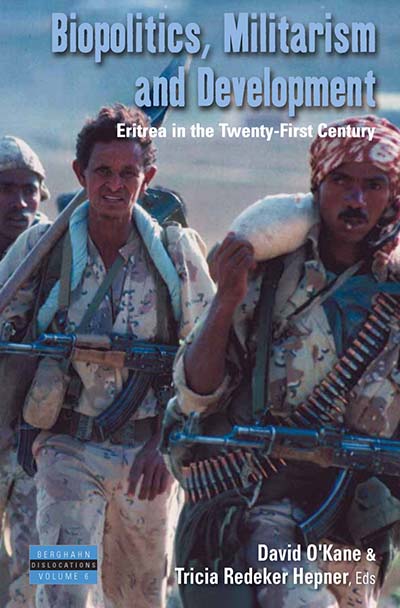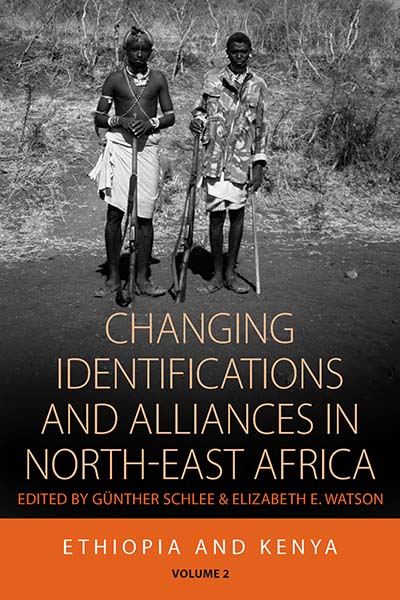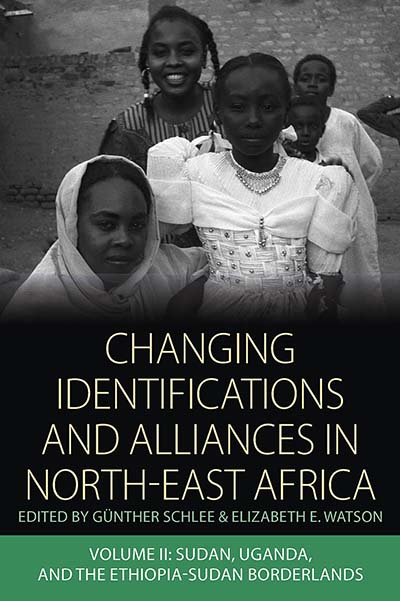
Series
Volume 6
Dislocations
Email Newsletters
Sign up for our email newsletters to get customized updates on new Berghahn publications.
Biopolitics, Militarism, and Development
Eritrea in the Twenty-First Century
Edited by David O'Kane and Tricia Redeker Hepner
236 pages, bibliog., index
ISBN 978-1-84545-567-5 $135.00/£104.00 / Hb / Published (March 2009)
ISBN 978-0-85745-289-4 $34.95/£27.95 / Pb / Published (February 2011)
eISBN 978-1-83695-906-9 eBook
Reviews
“…provides a much-needed collection of ethnographies and historical analyses on Eritrea’s development model and its discontents…the ethnographies presented in this volume contribute towards a rare perspective on Eritrean militarized and militarizing development and state formation.” · JRAI
“…provides a much needed, first-rate collection of scholarship concerning the operations and development of the Eritrean state during the last decade. Each chapter utilizes well-grounded research to illustrate the myriad complexities related to Eritrean national identity, state-building, and the political significance of diasporic communities.” · North East African Studies
“This volume offers significant and new information on and insights into current developments in many different areas and – thanks to a comprehensive bibliography on Eritrea and theoretical foundations of the concept of biopolitics as an appendix – inspirations for further general readings and reflections in the field of political.science.” · Peripherie
“This little collection provides an excellent overview of the processes and policies at work in these transformations and gives a multifaceted picture of contemporary Eritrea…The volume is organized around the theme of biopolitics, militarism, and the state and the chapters while quite diverse in subject matter work together exceptionally well in addressing common themes. This book should be read by policy makers and those engaged in humanitarian interventions in the Horn of Africa.” · Anthropos
Description
Bringing together original, contemporary ethnographic research on the Northeast African state of Eritrea, this book shows how biopolitics - the state-led deployment of disciplinary technologies on individuals and population groups - is assuming particular forms in the twenty-first century. Once hailed as the “African country that works,” Eritrea’s apparently successful post-independence development has since lapsed into economic crisis and severe human rights violations. This is due not only to the border war with Ethiopia that began in 1998, but is also the result of discernible tendencies in the “high modernist” style of social mobilization for development first adopted by the Eritrean government during the liberation struggle (1961–1991) and later carried into the post-independence era. The contributions to this volume reveal and interpret the links between development and developmentalist ideologies, intensifying militarism, and the controlling and disciplining of human lives and bodies by state institutions, policies, and discourses. Also assessed are the multiple consequences of these policies for the Eritrean people and the ways in which such policies are resisted or subverted. This insightful, comparative volume places the Eritrean case in a broader global and transnational context.
David O'Kane is a graduate of the National University of Ireland and Queen's University Belfast. He has worked in universities in Eritrea, Northern Ireland, the Republic of Ireland, Britain, Russia, and New Zealand.
Tricia Redeker Hepner teaches Anthropology at the University of Tennessee, Knoxville. Her research on Eritrea was funded by the National Science Foundation, the Social Science Research Council, and the Wenner-Gren Foundation for Anthropological Research. She is the author of Soldiers, Martyrs, Traitors and Exiles: Political Conflict in Eritrea and Diaspora (University of Pennsylvania Press).




